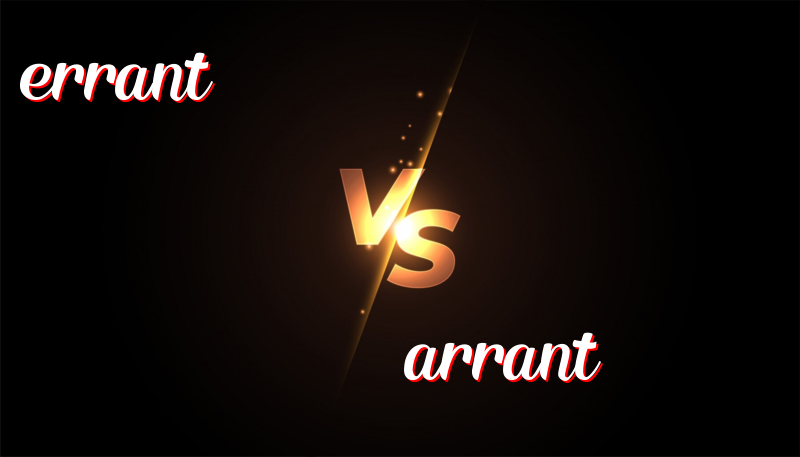Enjoy the Simple English Article: Errant vs. Arrant
**errant vs. arrant: Understanding the Difference**
In the past, the English language used the words “errant” and “arrant” with slightly different meanings. Today, “errant” is often used to describe someone who is wandering or straying from the right path. On the other hand, “arrant” is rarely used in modern English, but when it is, it signifies someone or something being downright or thorough.
**How to Use Them:**
– *Errant:* (adjective) – used to describe someone or something that is wandering or straying
1. The errant puppy wandered away from its owner at the park.
2. The knight went on an errant quest to find the missing princess.
3. She made errant choices in her youth but eventually found her way.
4. The errant student kept disrupting the class with his constant talking.
5. The bird made an errant flight and ended up in a different garden.
– *Arrant:* (adjective) – used to emphasize someone or something as being complete or extreme
1. His arrant disregard for the rules got him into trouble.
2. The arrant fool didn’t listen to any advice and failed the exam.
3. She displayed an arrant lack of respect for others’ feelings.
4. The arrant beauty of the sunset took everyone’s breath away.
5. The cake was an arrant delight, with layers of scrumptious flavors.
**Trick to Remember the Difference:**
Remember that “errant” has an extra ‘r’ in it. Think of the ‘r’ standing for “roaming” or “running off-track,” which can help you recall its meaning. On the other hand, “arrant” could be thought of as something “arrantly bad” or “arrantly good” to emphasize its extreme nature.
**Summary:**
In summary, “errant” is used when describing wandering or straying behavior, while “arrant” is used to emphasize something as being complete or extreme. By keeping these distinctions in mind, you can ensure you’re using the right word in the right context.

Leave a Reply
You must be logged in to post a comment.